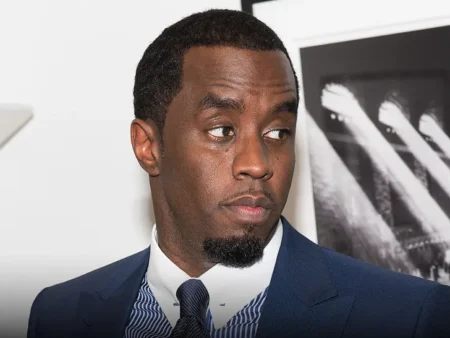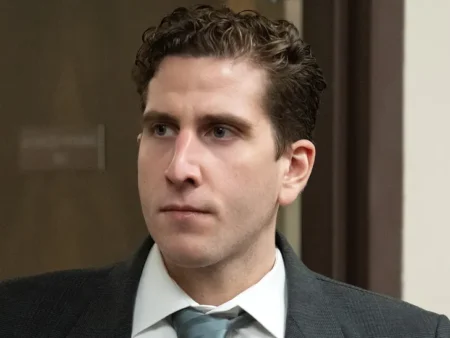Chlöe Bailey Faces Legal Battle Over Unpaid Contributions to ‘Trouble in Paradise’ Album
Chlöe Bailey is now embroiled in a legal dispute after songwriter-producer Melvin Moore, known professionally as OneInThe4Rest, filed a lawsuit on February 20, 2025. The legal action revolves around accusations of unpaid contributions to Bailey’s debut solo album, Trouble in Paradise. According to Moore, he is owed compensation for his work on three tracks from the album: Favorite, Same Lingerie, and Might as Well. The lawsuit also alleges deceptive business practices against both Bailey and her labels, Columbia Records and Parkwood Entertainment.
The core of Moore’s claims lies in the use of his lyrics and personal experiences without proper permission, credit, or compensation. As detailed in the lawsuit, Moore asserts that his narratives, which were woven into the fabric of the aforementioned tracks, were used by Bailey’s team without his consent. This lack of acknowledgment has led Moore to accuse Bailey and her team of failing to negotiate in good faith prior to the release of Trouble in Paradise. The songwriter and producer also highlights how the tracks were promoted and distributed, all while his work was left uncredited.
Moore, a Grammy-nominated songwriter with an impressive list of collaborators such as Usher, French Montana, Chris Brown, 2 Chainz, John Legend, and Drake, is no stranger to the music industry. His lawsuit emphasizes the discrepancy between the promotion of the tracks and the lack of recognition for his creative contributions. As Moore alleges, Bailey’s and her label’s actions not only overshadowed his work but also harmed his reputation and financial interests.
The legal proceedings have already seen a strong response from Moore’s team. In a cease-and-desist letter sent to Bailey and her labels, Moore demands that they cease using the songs in question. He also denies them any rights to the tracks and refuses to grant the necessary first-use mechanical license for their commercial release. This license is crucial for the legal distribution of music, meaning Moore’s refusal to grant it is a significant obstacle for the continuation of the songs’ availability.
At the heart of Moore’s claims is an immediate demand for $10,000 in compensation, as well as a fair distribution of royalties. Specifically, Moore’s legal team is seeking a 2% royalty per master recording, in addition to the publishing rights that would entitle him to a share of the proceeds from the songs’ success. Further, Moore’s team is pushing for the removal of the disputed tracks from streaming platforms, websites, and social media. These requests are accompanied by a hefty demand for damages, including statutory damages of up to $150,000 per infringement and $5 million in punitive damages per song.
The case has not only drawn attention to potential business missteps within Bailey’s camp but has also raised broader questions about the treatment of songwriters and producers in the music industry. The entertainment industry, particularly in the world of pop and R&B, has seen numerous high-profile lawsuits regarding unpaid royalties and misattribution of creative work. This case highlights the delicate nature of these relationships and the importance of proper contractual agreements and ethical business practices.
Chlöe Bailey’s Trouble in Paradise album, which received attention for its blend of contemporary pop and R&B influences, was seen as a pivotal moment in her solo career after her time with the successful duo Chloe x Halle. While the album marked a new chapter for Bailey, this lawsuit casts a shadow over her emerging solo journey. The controversy surrounding the lawsuit could potentially affect her public image and the album’s commercial success, particularly if Moore’s claims prove to be true.
This legal battle comes at a time when the entertainment industry is becoming increasingly vigilant about transparency and fairness when it comes to creative compensation. Moore’s lawsuit could set a significant precedent for future legal actions involving songwriting and production credits, with many artists and industry professionals watching closely to see how the case unfolds.
As the case progresses, both Moore and Bailey’s teams will likely work toward an out-of-court settlement or face off in court, where the specifics of the legal arguments and the evidence presented will determine the outcome. Until then, fans and industry insiders alike will be keeping a close eye on the legal ramifications of this high-stakes dispute.
The Future of Trouble in Paradise
As this lawsuit continues to make headlines, Bailey’s career trajectory could be significantly affected. Known for her captivating performances and bold creative direction, the artist’s reputation has been called into question by this legal controversy. Fans are left to wonder how this will impact her future projects and relationships within the music industry.
This case is a reminder that in the fast-paced world of music, the importance of protecting intellectual property and ensuring fair compensation cannot be overstated. With the legal battle now in full swing, Moore’s decision to stand up for his rights is sending a powerful message to other creators in the industry.
In the coming weeks, we’ll likely see more developments, including potential statements from both Bailey and her label, as well as updates on the lawsuit’s progress. As this unfolds, it’s clear that this legal drama is far from over, and its outcome could have significant consequences for both Bailey and Moore.
The Ongoing Struggles of Songwriters and Producers
Songwriters and producers like Moore have long been fighting for greater recognition and fair compensation in the music industry. Despite their essential role in shaping the music we hear on the charts, many creators still face the challenge of ensuring that their work is properly acknowledged and rewarded.
This case serves as a stark reminder that for every artist in the spotlight, there is a behind-the-scenes team working tirelessly to create the magic that fuels their success. As the industry continues to evolve, the relationship between artists, producers, and songwriters will likely continue to shift, with an increasing focus on ensuring equitable compensation and credit.
Conclusion
Chlöe Bailey’s lawsuit from Melvin Moore is not just a dispute over royalties—it’s a battle for fair recognition in an industry that often overlooks the unsung heroes behind the hits. As this case progresses, it will undoubtedly spark conversations about the treatment of creators and the importance of establishing clear, ethical business practices in the entertainment world.








